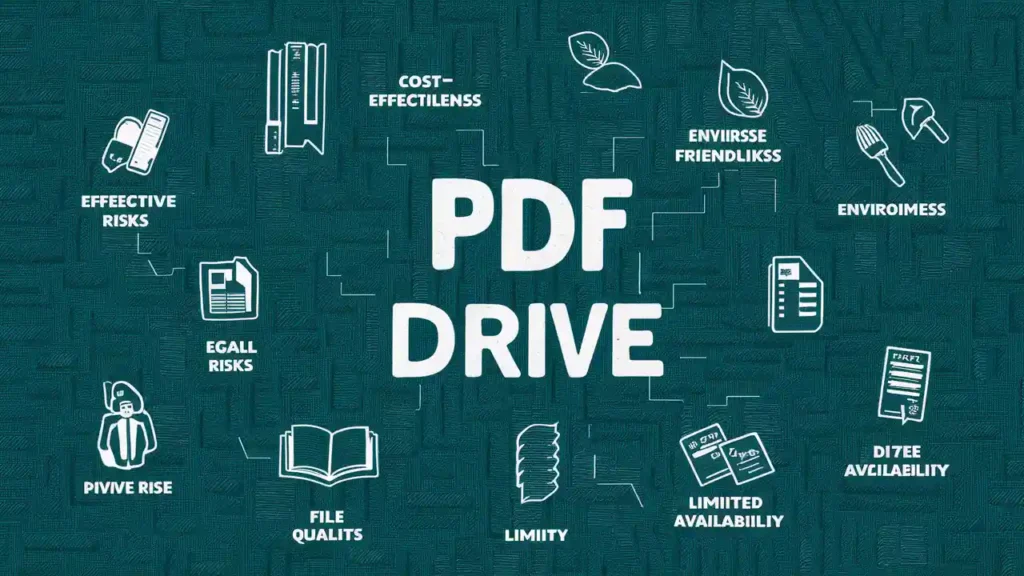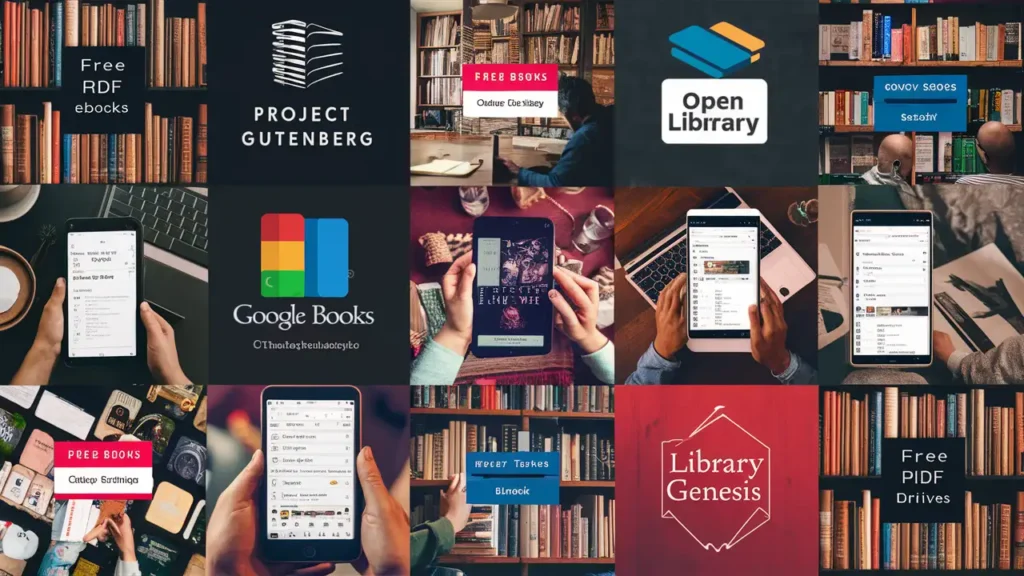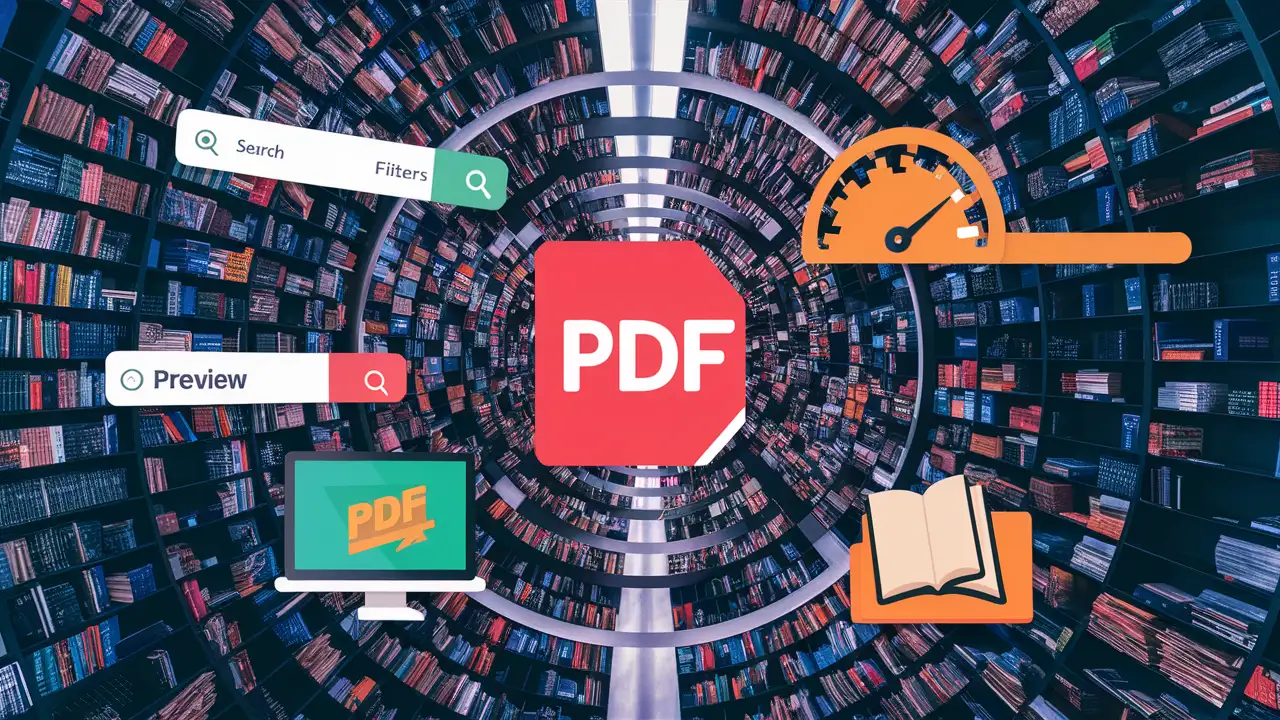In today’s digital world, the way we access and consume information has undergone a significant transformation. Gone are the days of scouring libraries for the perfect book. Instead, the rise of eBooks has made it easier than ever to access a vast array of literature, academic texts, and other resources with just a few clicks. Among the plethora of platforms available, PDF Drive stands out as a prominent name for those seeking free eBooks across various genres. In this article, we’ll explore what PDF Drive offers, how to use it, and why it has become a go-to resource for readers worldwide.

What is PDF Drive?
PDF Drive is a free search engine that allows users to find and download millions of PDF files, including eBooks, academic papers, magazines, and more. Unlike traditional eBook stores or libraries that may require membership or payment, PDF Drive provides access to an extensive database of files at no cost. The platform is user-friendly, making it an ideal choice for students, researchers, and casual readers alike.
Key Features
1. Vast Collection of eBooks
One of the primary reasons for PDF Drive’s popularity is its massive collection of eBooks. Whether you’re looking for fiction, non-fiction, academic papers, or magazines, PDF Drive has something for everyone. The platform hosts over 75 million PDF files, ensuring that users can find exactly what they need.
2. User-Friendly Interface
PDF Drive’s interface is clean and straightforward, allowing users to navigate the site with ease. The search bar at the top of the homepage enables users to quickly find specific titles or topics. Additionally, the platform offers filters such as file size, publication date, and language, helping users refine their searches.
3. High-Speed Downloads
One of the most significant advantages of PDF Drive is its high-speed download feature. Unlike some other platforms that limit download speeds or require you to wait, PDF Drive allows for quick and easy downloads, ensuring that users can access their desired files in no time.
4. Preview Feature
Before committing to a download, users can preview the content of a file to ensure it meets their needs. This feature is particularly useful for academic texts, where verifying the relevance of a document is crucial.
5. Regular Updates
continuously updates its database, adding new files and removing outdated or irrelevant ones. This ensures that users have access to the latest publications and resources in their respective fields.
How to Use PDF Drive

Using PDF Drive is a simple and straightforward process. Here’s a step-by-step guide:
- Visit the Website: Start by visiting PDF Drive’s official website.
- Search for a Title: Use the search bar at the top of the page to enter the title, author, or subject of the book you’re looking for.
- Apply Filters: If needed, apply filters such as file size, publication date, or language to narrow down your search results.
- Preview the Book: Click on the title of the book to view its details and preview its contents.
- Download the File: Once you’re satisfied with your choice, click the “Download” button to save the PDF file to your device.
- Read and Enjoy: Open the downloaded file using any PDF reader and start reading!
Is PDF Drive Legal?
The legality of using PDF Drive can be a gray area, depending on the content you’re accessing and your location. While PDF Drive itself is a legitimate search engine, some of the files hosted on the platform may infringe on copyright laws. It’s essential to exercise caution and ensure that the material you download is either in the public domain or available under an open license.
To stay on the safe side, always verify the legality of the content you’re accessing and avoid downloading copyrighted material without proper authorization.
Benefits of Using

1. Cost-Effective
For students, researchers, or anyone on a budget, PDF Drive is a cost-effective way to access a vast range of books and academic resources without spending a dime. This is particularly beneficial for those who may not have access to a well-stocked library or who cannot afford expensive textbooks.
2. Accessibility
PDF Drive offers unparalleled accessibility. As long as you have an internet connection, you can access and download files from anywhere in the world. This makes it an excellent resource for people in remote areas or countries with limited access to physical libraries.
3. Diverse Range of Content
From classic literature to the latest academic research, PDF Drive offers a diverse range of content that caters to various interests and needs. Whether you’re a casual reader looking for your next novel or a researcher searching for academic papers, PDF Drive has you covered.
4. Environmentally Friendly
By opting for eBooks instead of physical copies, you’re contributing to a more sustainable and environmentally friendly way of consuming literature. eBooks reduce the need for paper, printing, and transportation, making them a greener alternative to traditional books.
Potential Drawbacks

While PDF Drive has many advantages, it’s essential to be aware of potential drawbacks:
1. Legal Risks
As mentioned earlier, the legality of downloading certain files from PDF Drive can be questionable. Downloading copyrighted material without permission can result in legal repercussions, so it’s crucial to be cautious.
2. Quality of Files
Not all files are of high quality. Some may have formatting issues, missing pages, or other problems that can detract from the reading experience. It’s always a good idea to preview a file before downloading it to ensure it meets your standards.
3. Limited Availability of Certain Titles
While PDF Drive boasts an extensive collection, it may not have every title you’re looking for. In some cases, particularly with newer or more obscure books, you may need to turn to other sources.
Alternatives to PDF Drive

If PDF Drive doesn’t have what you’re looking for, or if you’re concerned about the legality of certain downloads, several alternatives offer similar services:
- Project Gutenberg: A well-known resource for free eBooks, particularly classic literature that is in the public domain.
- Open Library: A project of the Internet Archive, offering millions of free eBooks across various genres.
- Google Books: While not entirely free, Google Books offers a vast collection of eBooks, with many available for free or at a low cost.
- Library Genesis: Another popular platform for free eBooks and academic papers, though it also operates in a legal gray area.
Conclusion
PDF Drive is a valuable resource for anyone looking to access free eBooks, academic texts, and other PDF files. Its vast collection, user-friendly interface, and high-speed downloads make it an attractive option for readers and researchers alike. However, it’s essential to be mindful of the legal implications of downloading certain files and to ensure that the content you’re accessing is legal in your region.
As with any online resource, exercising caution and using the platform responsibly will help you make the most of what PDF Drive has to offer. Whether you’re a student looking for textbooks, a researcher in need of academic papers, or a casual reader searching for your next great read, PDF Drive provides a convenient and cost-effective way to access the information you need.

1 thought on “PDF Drive: The Ultimate Resource for Free eBooks”